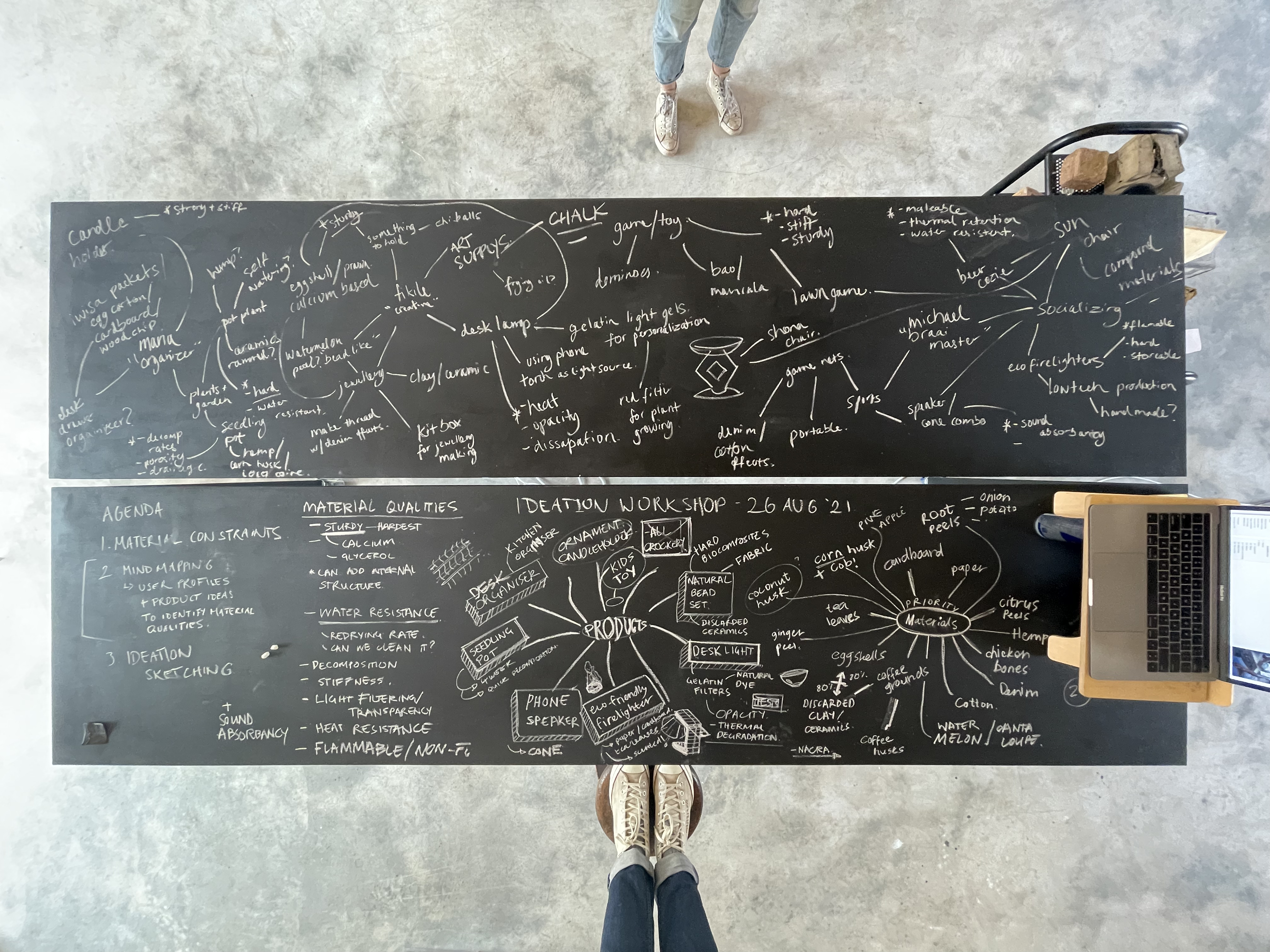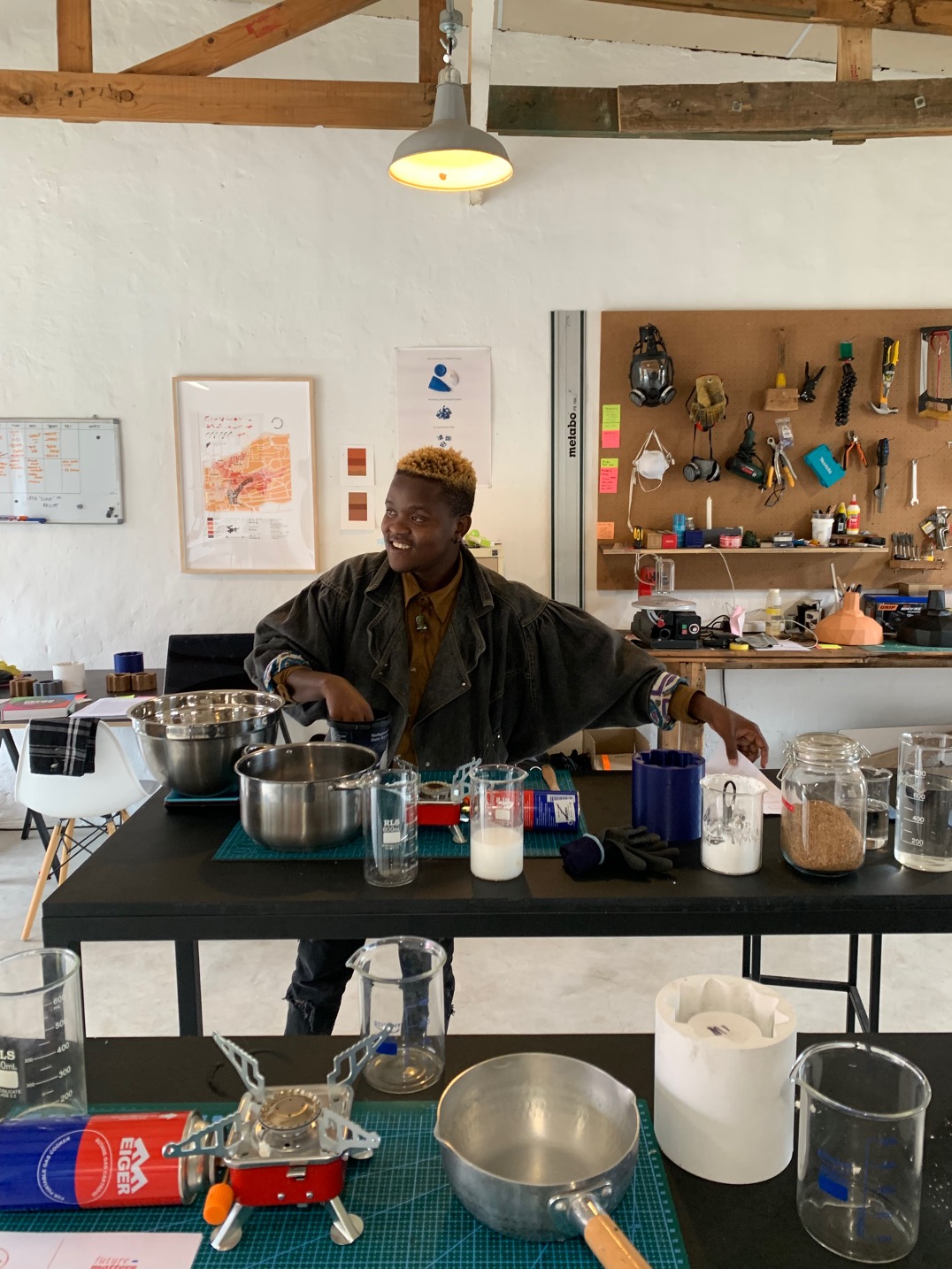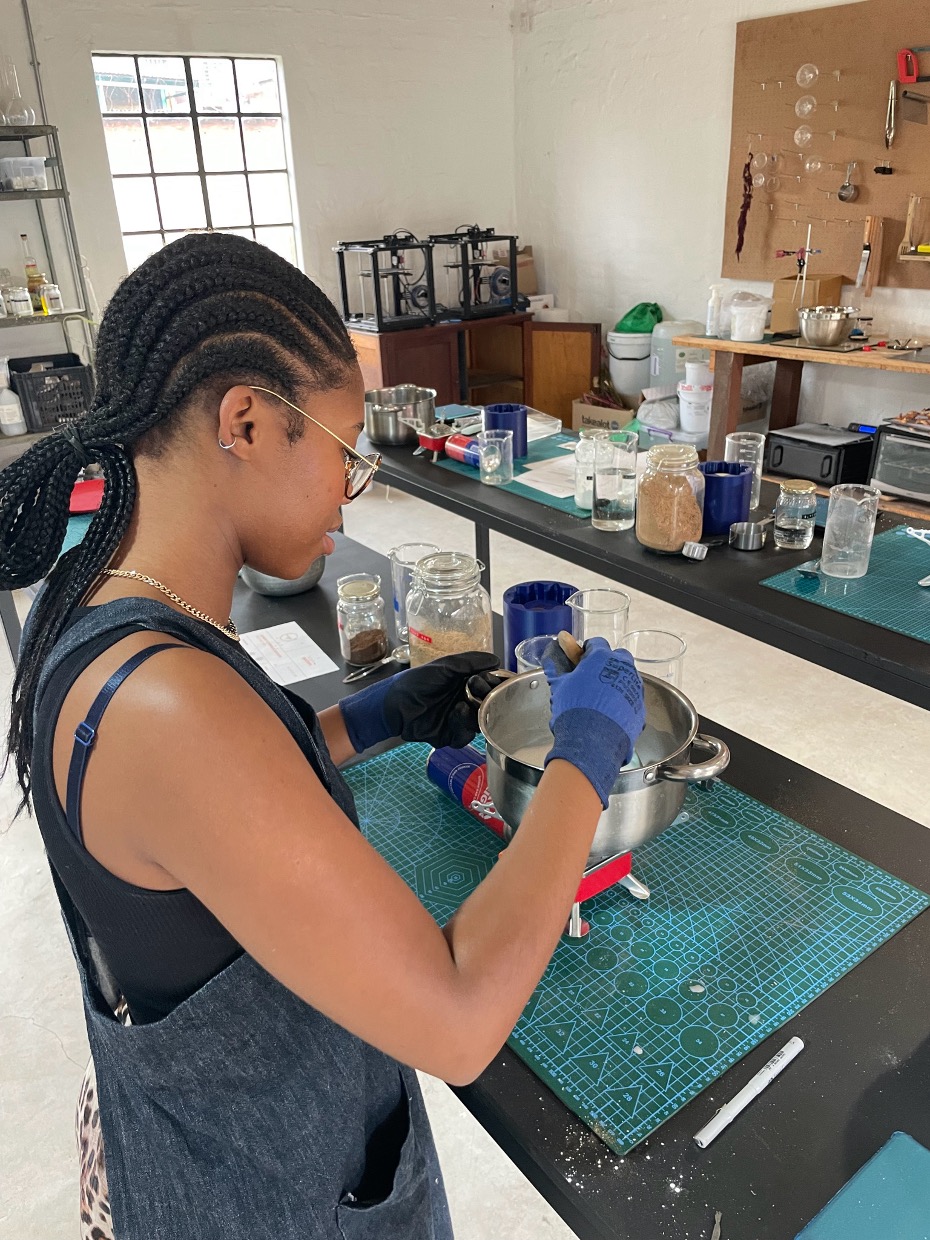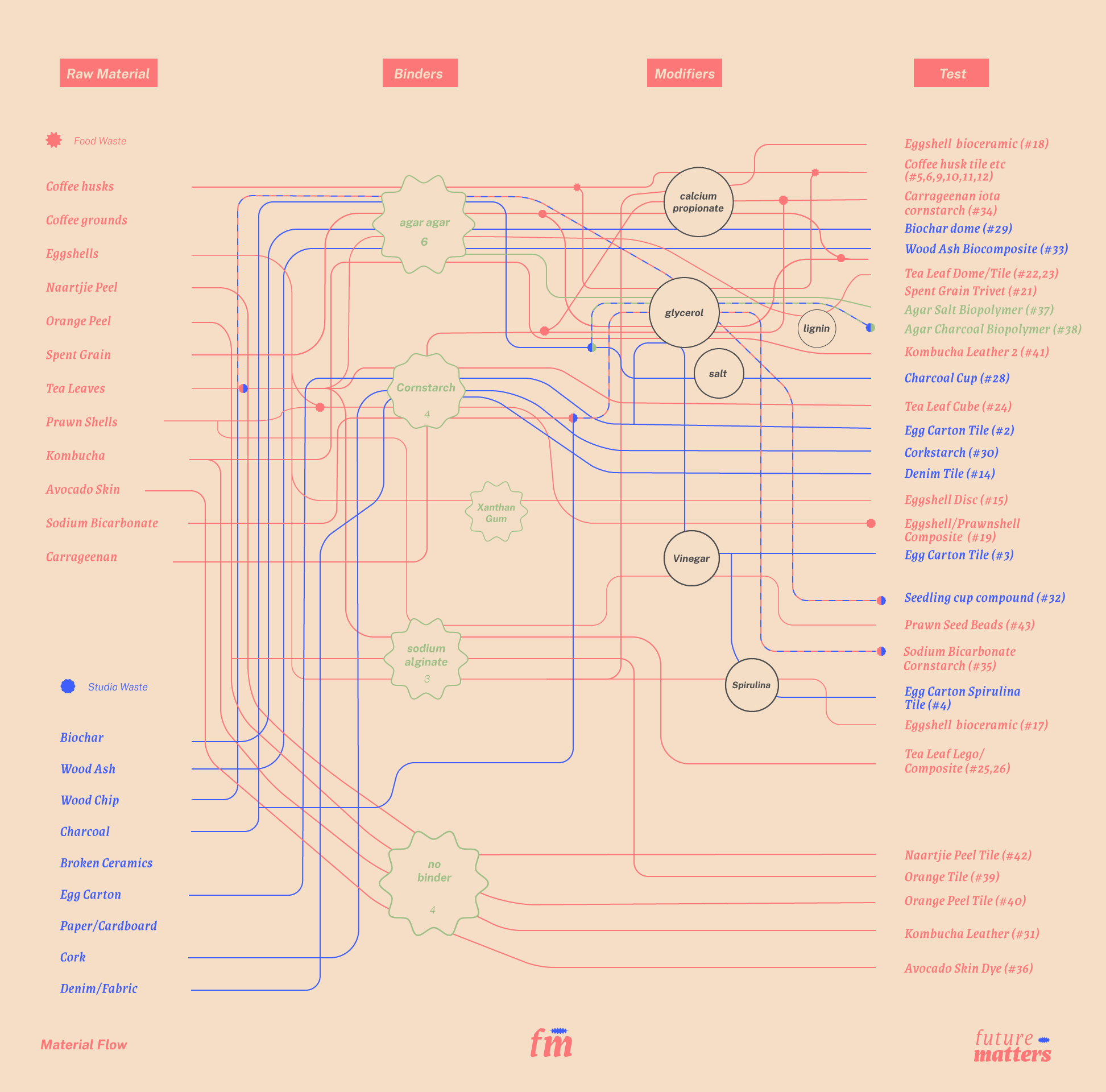FUTURE MATTERS//
Future Matters is a community engagement programme centred around material research, organic waste management, and skills creation. This pilot project aims to target the intersection of social, economic, and environmental impact through workshops and community co-creation.
Globally, one of the greatest challenges we face in the climate crisis is the wrong use and overuse of materials – a practice which accounts for two thirds of environmental damage. Materials are all too often disposed of in systems that do not appropriately value the resource or the environmental harm that is caused through use or landfill. Perhaps the most exploited in this regard are petroleum-based materials (plastics), which are used in everything from beauty products, to fabrics, to packaging without effective waste-management to keep the harms in check. As a result, plastic can be found in our environment, our water, our oceans, and even our bodies.
This dependency on plastic is highly evident in South Africa, which is ranked the 11th worst offender of plastics pollution globally, and proclaimed plastic bags as its ‘national flowers’ due to their prevalence. As plastic does not degrade, what results are stifled rivers, polluted communities, and everlasting toxic material. Where government budgets, uneven service delivery, and differing priorities target other pressing development issues, this challenge is magnified and begins to not only affect the environment, but the health and wellbeing of local communities. Significantly, the source of this problem in South Africa all too often comes from imported goods packaged in plastic - or worse, from the import of plastic waste from other countries.
In order to address this challenge and the associated environmental, economic, and social harms, we intend to substitute these harmful materials out of the system using locally sourced biomaterials
View the Full Project Report Here ︎︎︎
![]()
![]()
![]()
Globally, one of the greatest challenges we face in the climate crisis is the wrong use and overuse of materials – a practice which accounts for two thirds of environmental damage. Materials are all too often disposed of in systems that do not appropriately value the resource or the environmental harm that is caused through use or landfill. Perhaps the most exploited in this regard are petroleum-based materials (plastics), which are used in everything from beauty products, to fabrics, to packaging without effective waste-management to keep the harms in check. As a result, plastic can be found in our environment, our water, our oceans, and even our bodies.
This dependency on plastic is highly evident in South Africa, which is ranked the 11th worst offender of plastics pollution globally, and proclaimed plastic bags as its ‘national flowers’ due to their prevalence. As plastic does not degrade, what results are stifled rivers, polluted communities, and everlasting toxic material. Where government budgets, uneven service delivery, and differing priorities target other pressing development issues, this challenge is magnified and begins to not only affect the environment, but the health and wellbeing of local communities. Significantly, the source of this problem in South Africa all too often comes from imported goods packaged in plastic - or worse, from the import of plastic waste from other countries.
In order to address this challenge and the associated environmental, economic, and social harms, we intend to substitute these harmful materials out of the system using locally sourced biomaterials
View the Full Project Report Here ︎︎︎
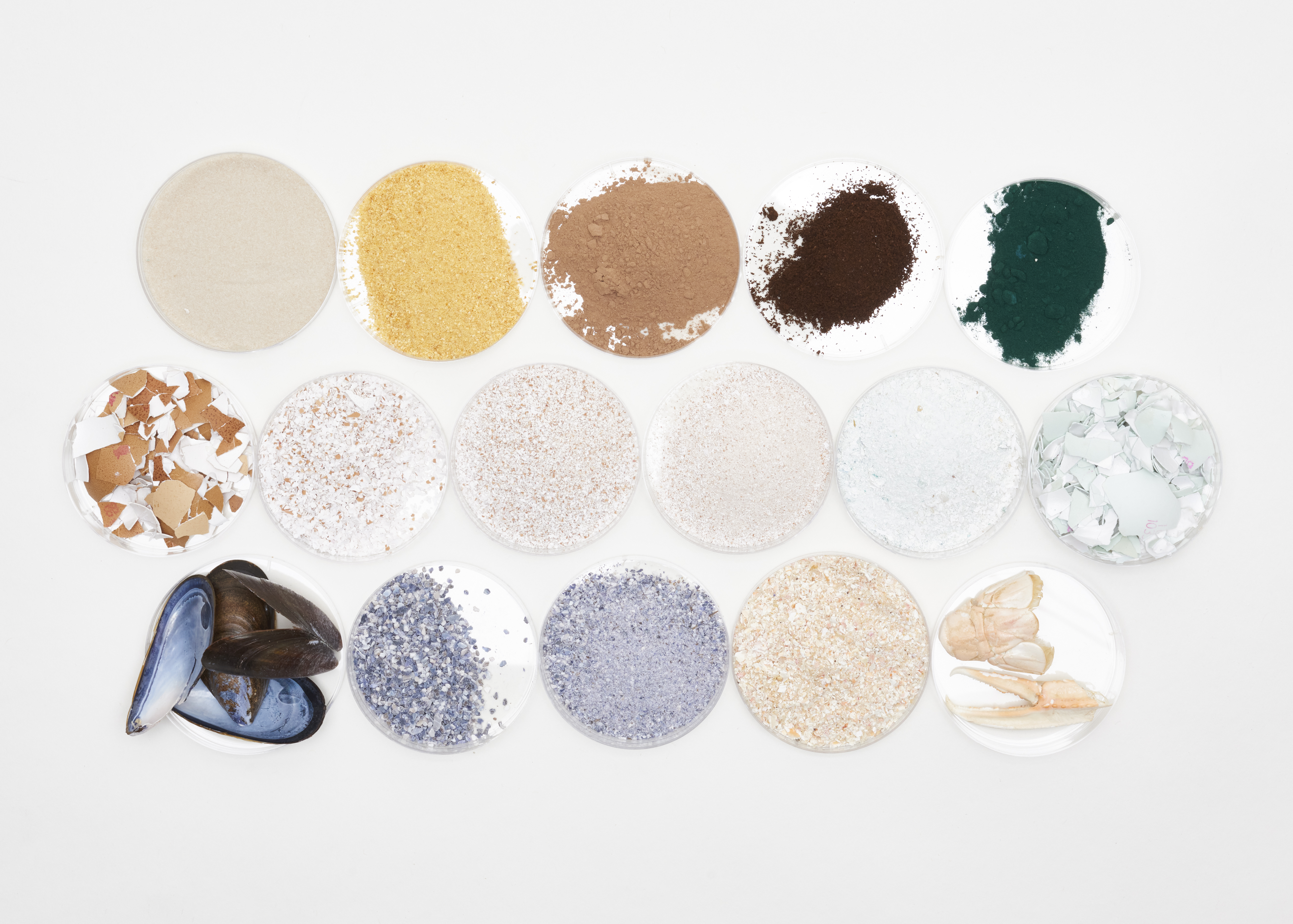

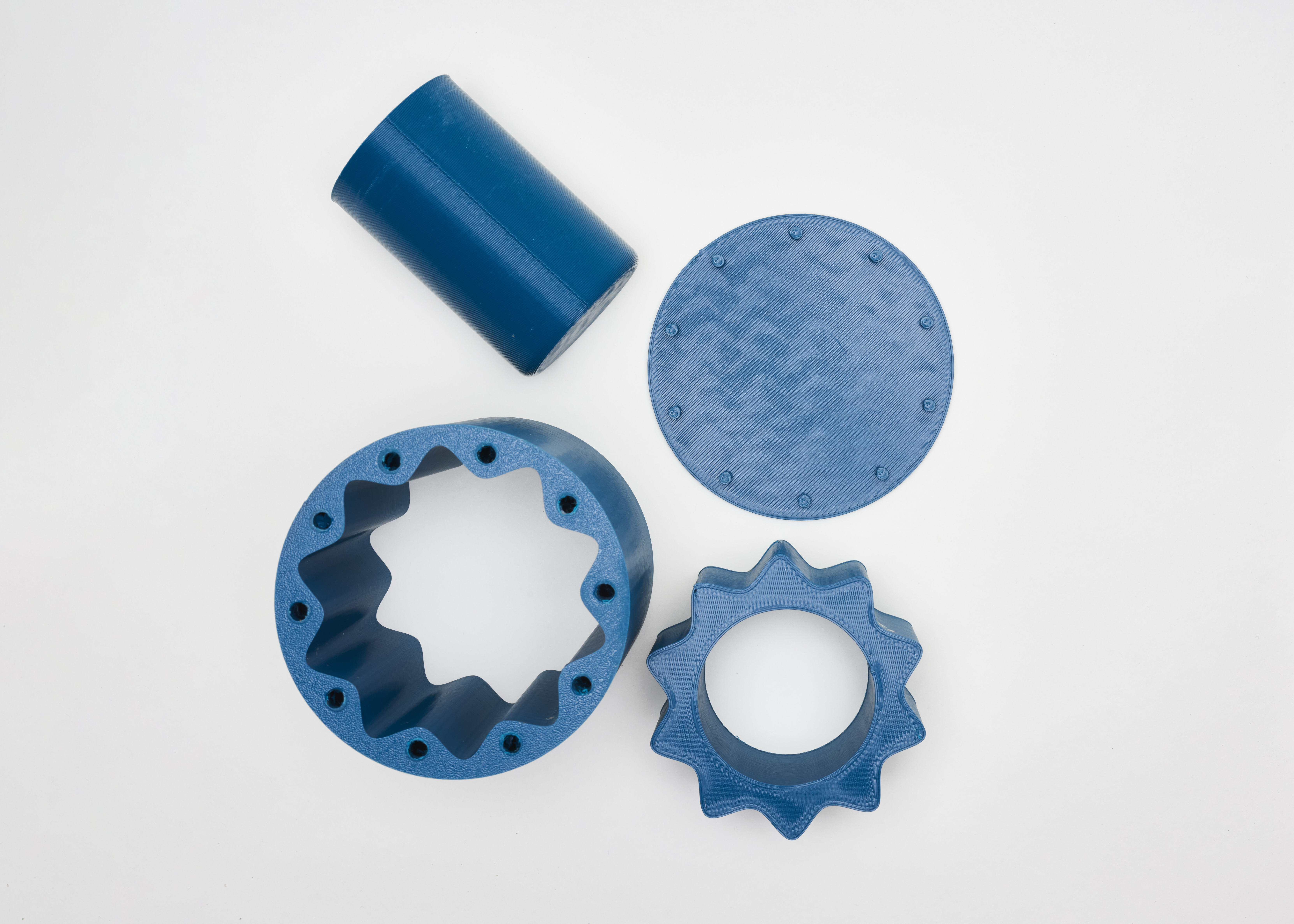
In response to this challenge, we aim to implement a model of community engagement and co-creation that substitutes petroleum-based materials for organic materials by focusing on open knowledge and biomaterial development. Together with the community, we will conduct organic-waste stream analysis, material mapping, and testing. We will identify waste streams that are abundant in biomass, like eggshell, coffee, and prawn shells. We will then use the knowledge gained to create products with low-tech processes that serve community needs and generate income.
The innovation in this project involves Materiom’s open-source, open-access material recipe database and network, which will allow for the testing and implementation of biomaterial research. It sets an exciting precedent for decentralising access to information on (bio)material research which will be disseminated during co-creation workshops. Materiom’s research and the project’s co-design approach will translate into viable solutions for South Africa’s plastics dependency.
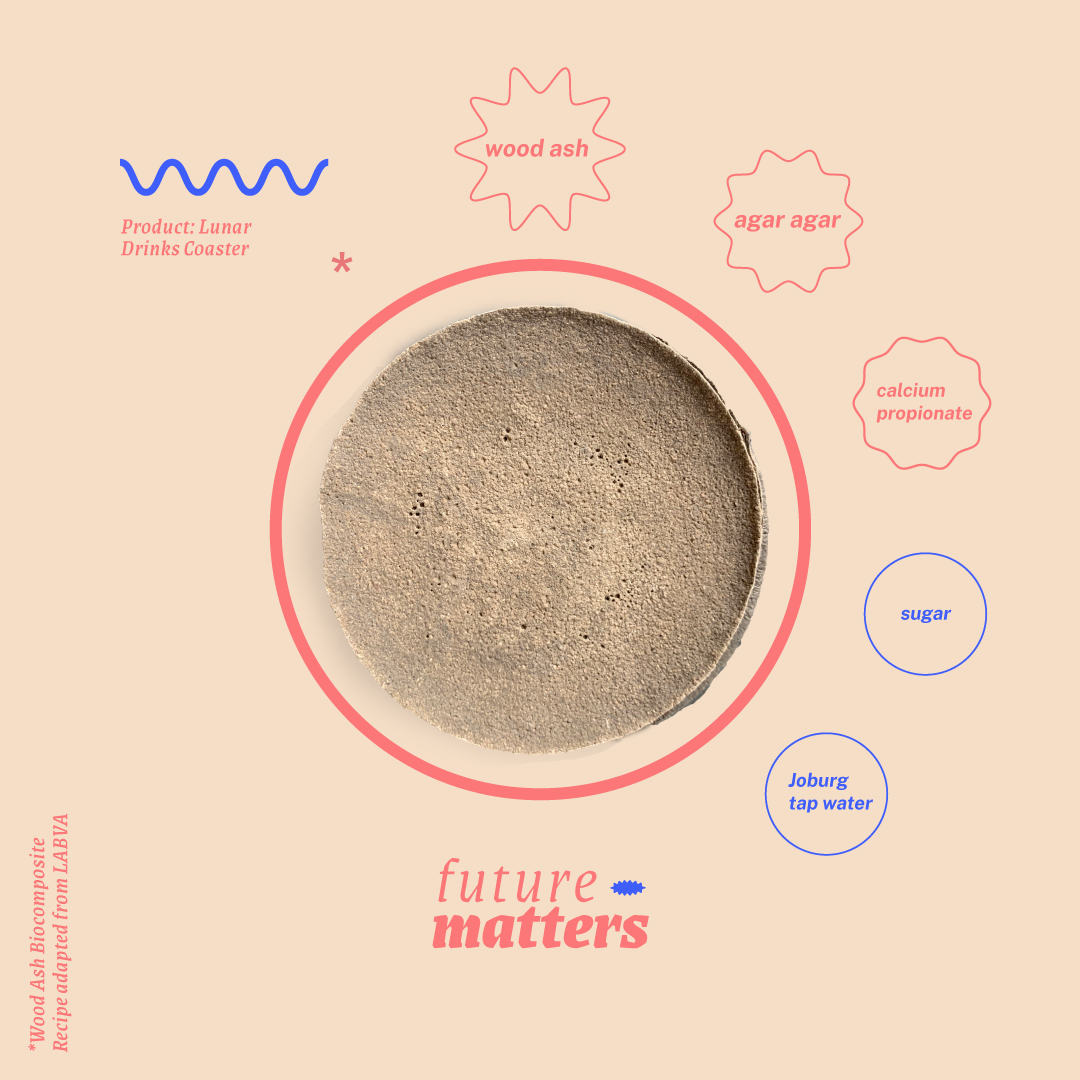
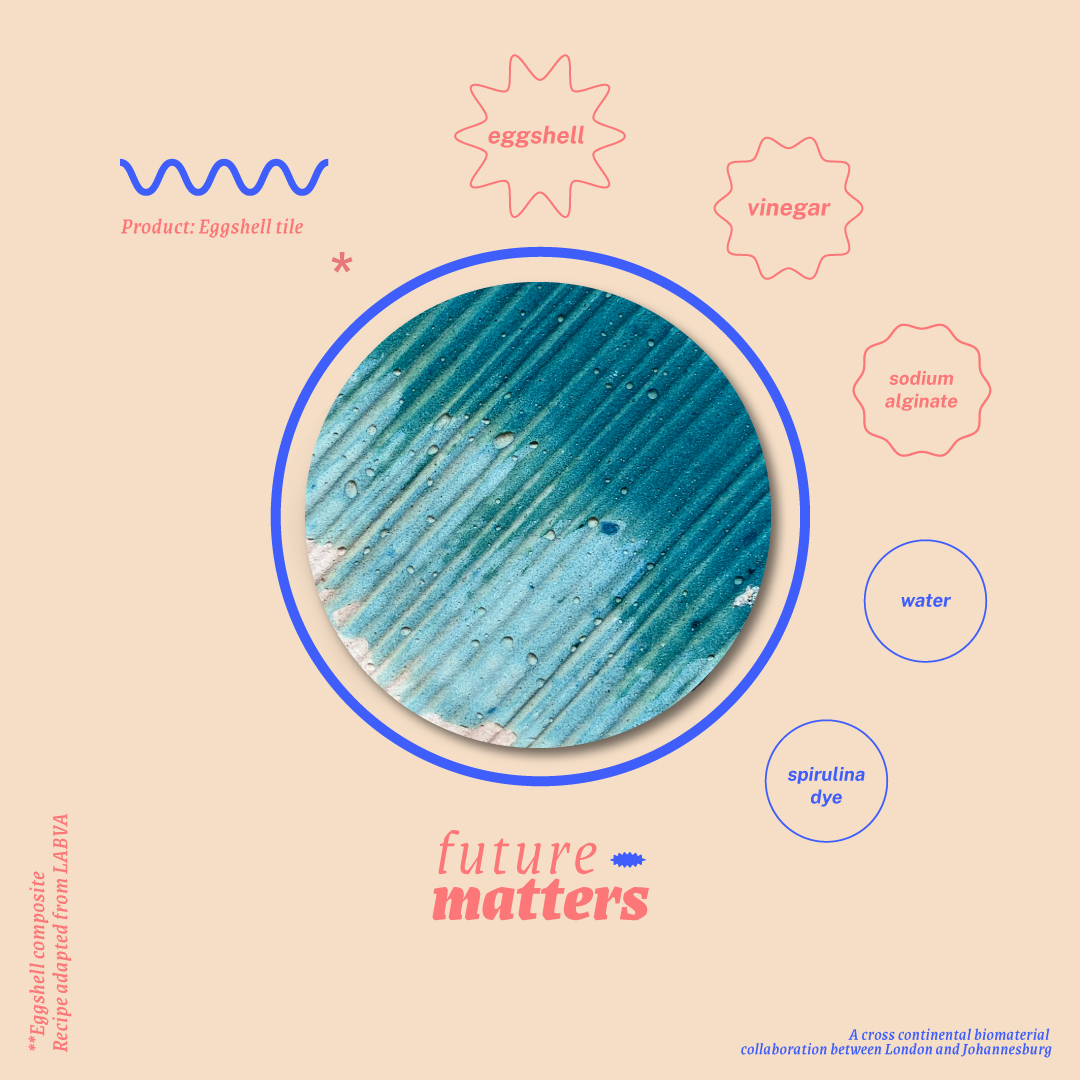
This process will create a network of organic waste knowledge and material exchange, supported by the partners current offerings through their respective platforms. Further, the project is in line with the organisation’s grassroots approaches to materials development and circular economy transitions.
We are working in the community of Bertrams, Johannesburg as an ideal location for this pilot project due to network and stakeholder access through Love Our City Klean’s community-recycling programme. Through this point of entry-to-market we see engagement occurring with an estimated 100 community members spread out over a series of 4-5 community-driven workshops.
These workshops were created for women; youth; teachers; entrepreneurs; and small-holder farmers as key actors. Through collaboration and co-creation, we will explore the market's potential using their organic waste to develop biomaterials and products that benefit them and the planet. Previous Materiom projects in cities similar to Johannesburg, like Santiago, Chile, have found that this kind of community engagement leads to network-creation and better interaction between existing networks.
The economic impact of this is evident through the communities ability to utilise waste they generate for materials they can sell, thus keeping money in the community. Subsequently, our programme will support the R&D process for South African biomaterial entrepreneurs across a range of industry areas, as we shift away from petroleum.
